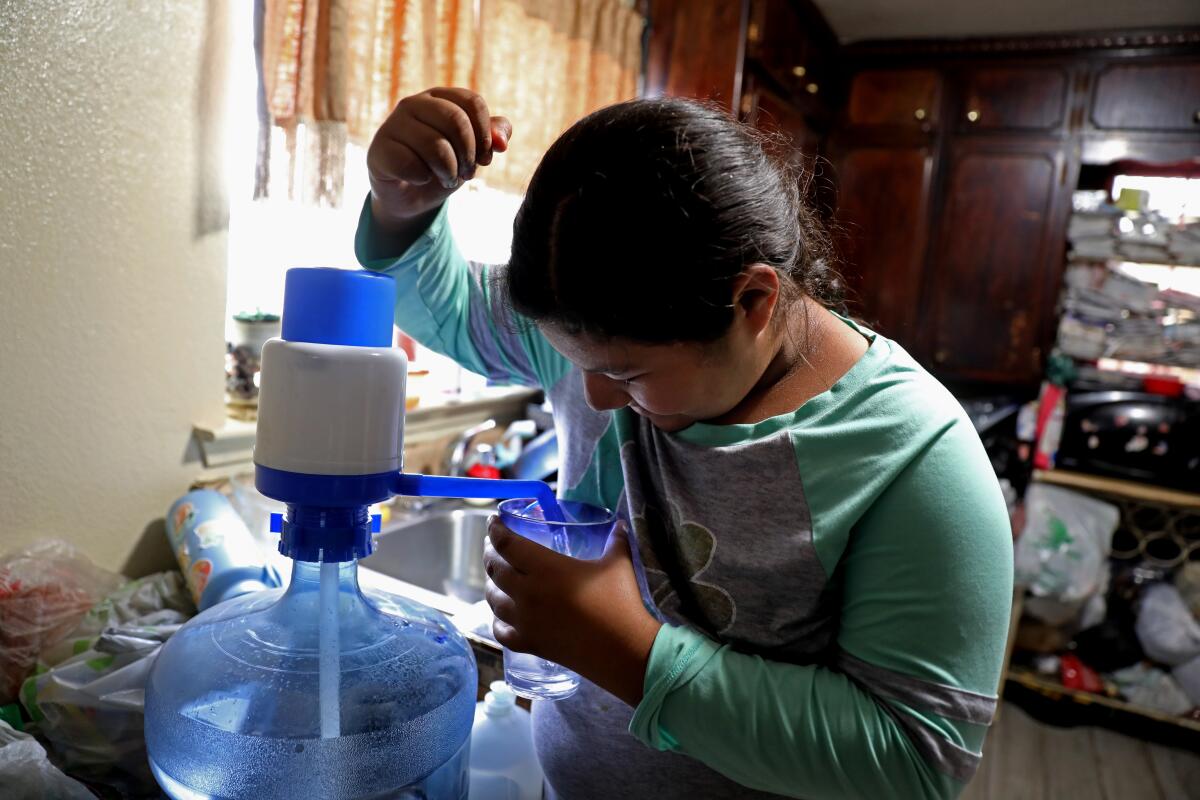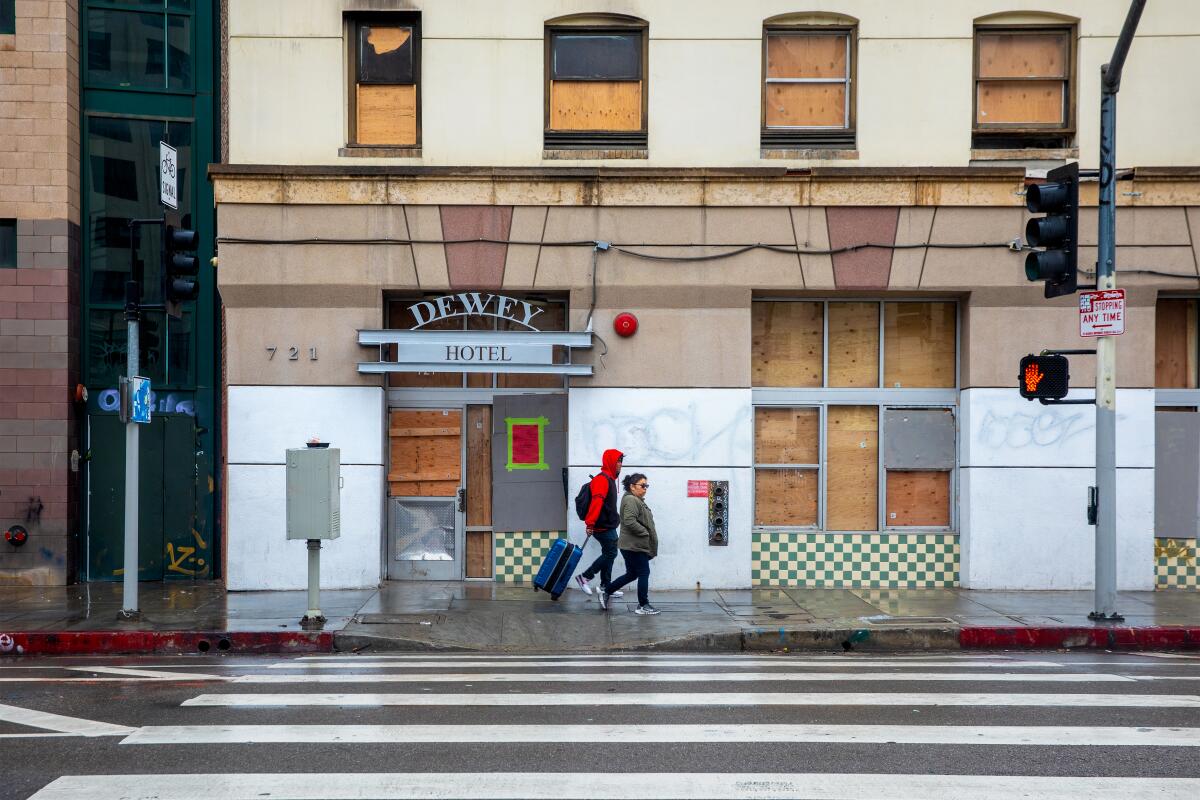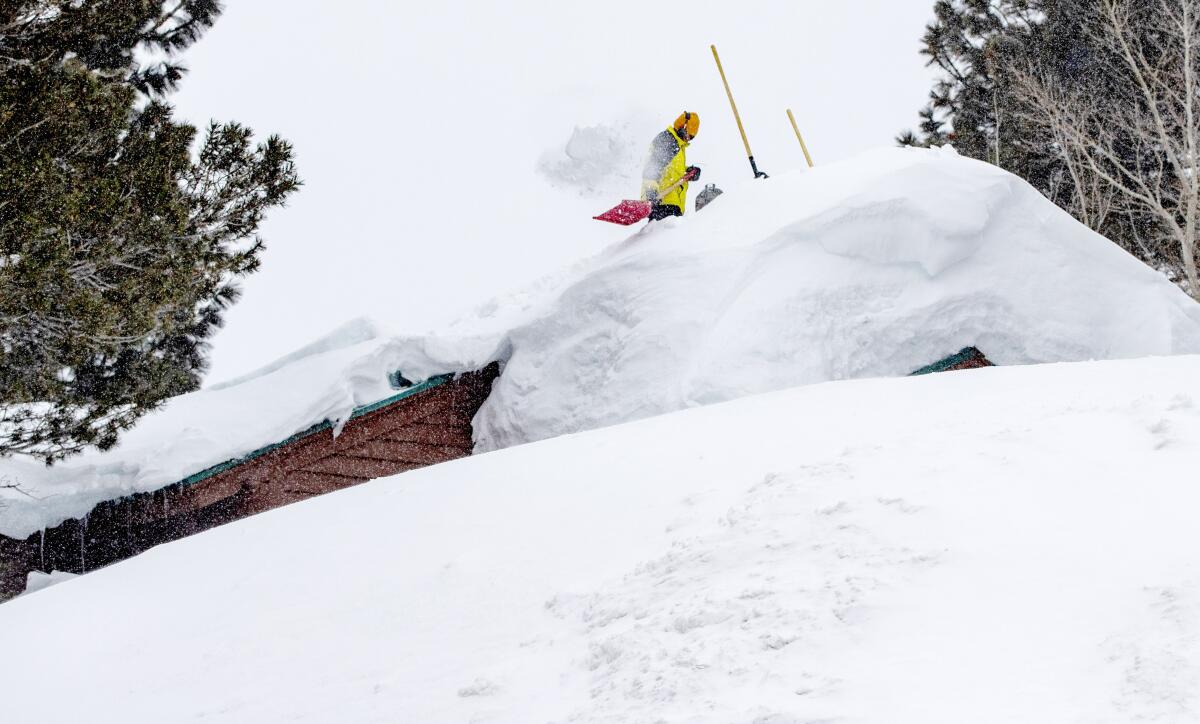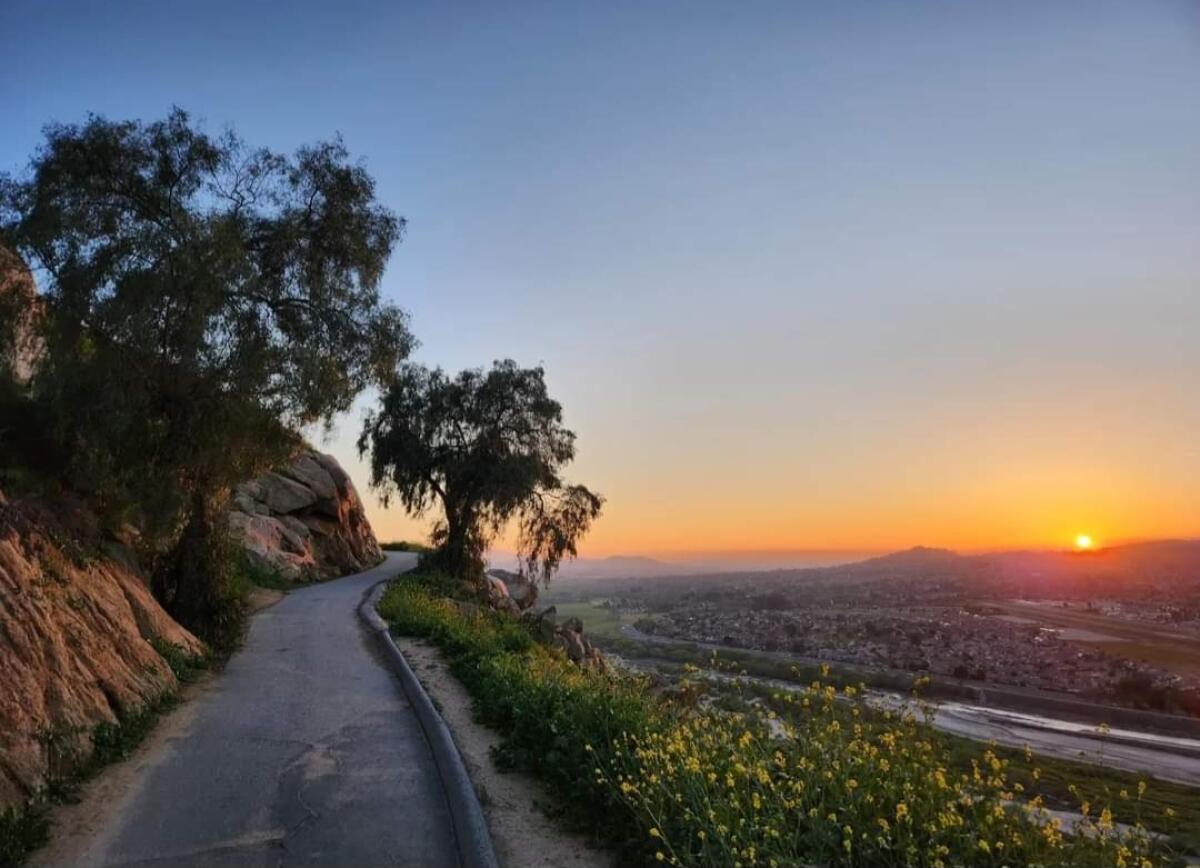How worried are Californians about access to water? A new study breaks that down

- Share via
Good morning, and welcome to the Essential California newsletter. It’s Monday, April 10.
When you turn on the tap, how confident are you that clean water will flow? Are you that certain about water access in five years? In 10? How about 20?
Perhaps the most consequential impact of the climate crisis is how it will affect our access to reliable, clean drinking water. California has been through the wringer in the last decade with extreme heat, record drought, historic wildfires and, most recently, devastating flooding — all of which can and have affected some residents’ access to water.
But to what extent do Californians perceive the risks that events like those pose to their water supplies? And how will perceptions and personal experiences affect public support for strategies to address the changing climate and ensure future Californians have water to drink?
“Whether perceived or not by water users, these climate change-driven extreme weather events have clear implications for California household water access,” climate scientists wrote in a new study.
Researchers from the Union of Concerned Scientists, UC Berkeley, UCLA, San Jose State and Texas A&M surveyed roughly 700 Californians “to better understand how to both advance and leverage support among households for climate change adaptation.”
The scientists focused on the Golden State specifically because it’s “the most populous U.S. state and one that is widely expected to experience intensified impacts resulting from climate change in coming years.”
The survey respondents represented every census region in California and nearly every county, with researchers focusing on two questions:
- In the last five years, has your household water supply been impacted by an extreme weather event?
- How much do you agree with this statement “I am concerned about California’s water supply reliability due to future extreme weather events”?
More than a third of Californians surveyed reported dealing with water supply issues due to extreme weather events, with drought the most common experience among those surveyed.
Here you might be thinking: But isn’t the drought over?
In the short term, yes. Historic winter storms have provided some “breathing room,” as one water management official told my colleague Ian James, but they don’t offset over two decades of drought that has imperiled the Colorado River.
Researchers said impacts to water supplies were “relatively evenly distributed across Californians with respect to education, income level, and water provider.” But they point to “significant differences across gender and racial divides.”
A larger share of women reported water supply impacts compared with men. “Genderqueer/non-binary respondents reported an even higher rate of these impacts,” researchers noted.
And as for the impacts among different races and ethnicities, the survey found:
“Both Latino and Asian American Pacific Islander (AAPI) residents are more likely than others to report impacts to their household water supplies. Whether this is attributable to residential type and location which, in turn, informs an individual’s water supply source, or highlights racial differences in risk perception and climate concern cannot be answered in this present study.”
As for that second question about the future, 85% of those surveyed expressed some level of concern.
Overall, Californians that had their water supply jeopardized by an extreme weather event were more likely to be concerned about water accessibility moving forward. But the level to which the respondents gauged their concern about future water access varied, depending on which extreme weather event they experienced.
The researchers found that Californians who experienced water supply issues related to drought, extreme heat and landslides were more likely to agree that water security was an ongoing concern. Residents who reported water impacts due to fires or flooding were less likely to express those concerns.
Study co-author Amanda Fencl, a Western states senior climate scientist at the Union of Concerned Scientists, said the findings are particularly important for “local, regional, and state governments, water managers and decisionmakers.”
“[They] all need to concern themselves with how and whether residents perceive climate risks,” Fencl wrote in a blog post on UCS’ website, adding:
“Our study demonstrates how personal experiences with extreme events affect perceptions of climate risks to water supplies, reminding us it is important to listen to the people who have experienced climate impacts as they will be the best advocates for future-proofing California’s water management system.”
And now, here’s what’s happening across California:
Note: Some of the sites we link to may limit the number of stories you can access without subscribing.
L.A. STORIES
A writers strike is on the horizon in Hollywood, with the Writers Guild of America poised for a work stoppage after contract negotiations stalled. The central issue: how the ascension of streaming brought more content and depressed pay. Five writers shared their stories with The Times. Los Angeles Times
The classical music at L.A. Metro’s Westlake-MacArthur Park Station is still playing, but it’s not as loud now, the agency said. Riders and transit advocates criticized Metro’s tactic to dissuade unhoused people from taking shelter in the station. LAist
All buildings operated by the nonprofit Skid Row Housing Trust have been placed into receivership after many of the 29 properties fell into extreme disrepair. The Times recently reported on the hazardous living conditions, mismanagement and financial disarray at the nonprofit, which had been a model for providing housing to people previously living on L.A.’s streets. Los Angeles Times

Check out "The Times" podcast for essential news and more
These days, waking up to current events can be, well, daunting. If you’re seeking a more balanced news diet, “The Times” podcast is for you. Gustavo Arellano, along with a diverse set of reporters from the award-winning L.A. Times newsroom, delivers the most interesting stories from the Los Angeles Times every Monday, Wednesday and Friday. Listen and subscribe wherever you get your podcasts.
POLITICS AND GOVERNMENT
San Francisco-based autonomous vehicle company Cruise has recalled the software on its 300 self-driving taxis after one crashed into a city bus last month. Company investigators said the minor rear-end collision was connected to the unique shape of the bus, which the AV taxi had trouble perceiving. San Francisco Chronicle
Gov. Gavin Newsom said California would cut ties with Walgreens following the pharmacy chain’s decision to cease sales of abortion pills in red states. But health experts say the state is legally obligated to continue doing business with Walgreens, which it pays to provide prescription medication through Medi-Cal. Los Angeles Times
State government watchdogs are raising concerns about press access in Sacramento. They point to a shift by state officials toward emails and written statements — exacerbated by the pandemic — that’s making it more difficult for journalists to hold those officials accountable. CalMatters
CRIME, COURTS AND POLICING
Federal prosecutors in Fresno have charged two men with using drones to drop drugs, cellphones and more into the yards of seven prisons across California. The tactic for delivering contraband in and out of prison has been gaining altitude nationally since around 2016, when prices for drones dropped. Los Angeles Times
The San Diego County District Attorney’s office has cleared San Diego police and sheriff’s deputies of wrongdoing in two separate shootings. In one case, officers fatally shot a robbery suspect who police say pulled a replica gun. San Diego Union-Tribune
Support our journalism
HEALTH AND THE ENVIRONMENT

The mountain community of Mammoth Lakes relies on snow to keep its economy going. But this winter’s record snowfall remains an “oppressive, occupying force” on residents, who have endured explosions from ruptured gas lines, crushed buildings and hazardous snow melts, Times reporter Louis Sahagún writes. Los Angeles Times
A proposed state law would give police, crisis teams and mental health providers more leeway to detain people in extreme psychological distress against their will. Proponents say it’s essential to properly address the mental health crisis, but disability and civil rights advocates argue that changing the law would violate equal protection rights. Los Angeles Times
Free online games
Get our free daily crossword puzzle, sudoku, word search and arcade games in our new game center at latimes.com/games.
AND FINALLY
Today’s California landmark is from Gerard Bergeron of Riverside: the popular Mt. Rubidoux hiking park.

Gerard writes:
This important landmark is not only a sought after destination for local hikers but has hosted a sunrise Easter service atop for over 100 years. The panoramic view of Riverside and surrounding areas offers breathtaking views of the beautiful topography of the Inland Empire.
What are California’s essential landmarks? Fill out this form to send us your photos of a special spot in California — natural or human-made. Tell us why it’s interesting and what makes it a symbol of life in the Golden State. Please be sure to include only photos taken directly by you. Your submission could be featured in a future edition of the newsletter.
Please let us know what we can do to make this newsletter more useful to you. Send comments to [email protected].
Sign up for Essential California
The most important California stories and recommendations in your inbox every morning.
You may occasionally receive promotional content from the Los Angeles Times.




